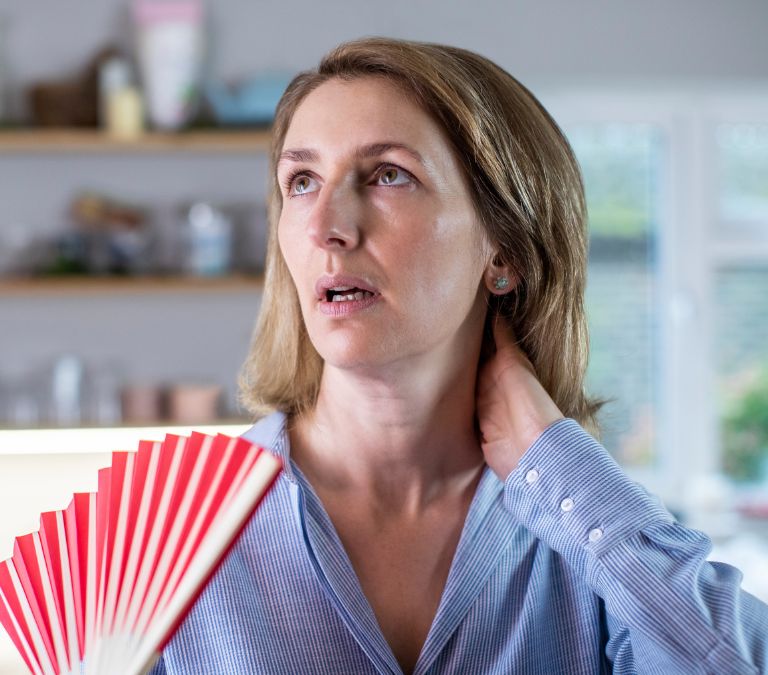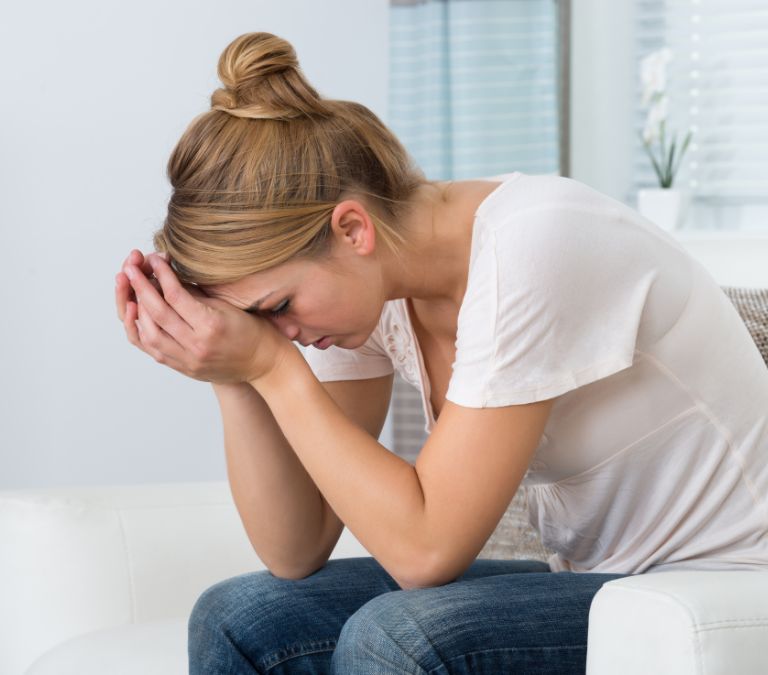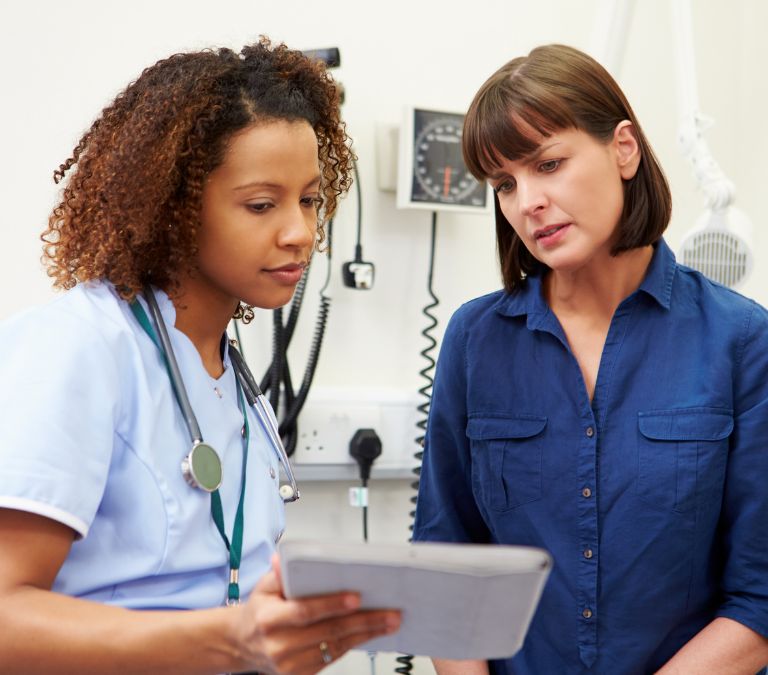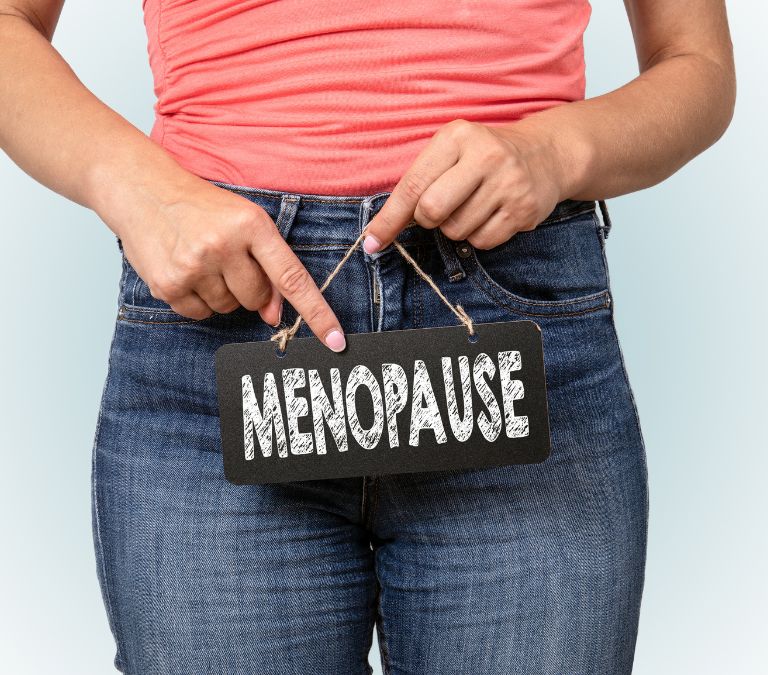That period of every woman’s life where her ovaries permanently lose the ability to produce eggs, when her periods stop, and it becomes practically impossible to give birth; that’s menopause. I’m sure you know a thing or two about menopause.
Generally, the average age for a woman to go into menopause is in her early 50s. In the United States, the average menopausal age stands at 51. However, some women can enter this phase about 10 to 15 years earlier. It is called premature menopause or early menopause.
According to research, illnesses, medical procedures, and genetics cause early or premature menopause among women. However, it is important to know that while menopause is predominantly natural, it can be induced by other causes that are not natural. With this, the reason for early or premature menopause is not always linked to illnesses and genetics.
Understanding Menopause
Menopause goes beyond just the termination of childbirth. With menopause comes certain complications of varying severity. In the United States, 90% of menopausal women have experienced some degree of hot flashes and night sweats. Going into more severe symptoms, menopausal women are more at risk of being diagnosed with heart and cardiovascular diseases, ovarian tumors, and even breast cancer.
Stages of Menopause
There are three distinct stages of menopause; perimenopause, menopause, and post-menopause.
Perimenopause or Premenopause
Perimenopause is the time that leads to menopause. At this point, the hormones begin to decline, and the menstrual cycle becomes unpredictable. During perimenopause, the body may experience some menopausal symptoms even when you aren’t in menopause yet. Perimenopause can last several years.
Menopause
When the body has gone through perimenopause, the next phase is menopause itself. When a woman experiences no periods for 12 consecutive months, she is automatically in menopause. This period is often plagued by menopausal symptoms of varying degrees, from hot flashes to night sweats, e.t.c.
Postmenopause
Postmenopause is the time immediately after menopause. Unfortunately, getting to this phase means remaining there for the rest of your life; your hormonal level stays low, and your monthly period disappears. As a result, your ovaries lose the ability to release eggs, making it impossible to get pregnant naturally. Generally, menopausal symptoms begin to decline as you go further in age. However, these symptoms can stay as long as a decade.
The reproductive system of women is more elaborate when compared to men. This complicated structure of the female reproductive system comes with changes for every growth stage. From childhood to puberty, adolescence to menopause, these changes come with their effects on the body.
Many diseases experienced by women today are linked to the reproductive system. While menopause often occurs naturally, it does not mean it cannot be triggered by other unnatural factors like medical conditions, surgeries, and medications. Some surgical or medical procedures can lead to menopause.
The point where the ovaries become incapable of releasing eggs marks the start of menopause regardless of its cause. Sometimes, the cause of sudden infertility is not even known. In the United States, up to 5% of women enter menopause from unnatural causes. In addition, many couples in the United States undergo surgical procedures to become infertile. This procedure is common in women who do not rely on birth control to prevent pregnancies.
So you’re 39? Does it Make it scarier?

It was 5:43 a.m. on the 11th day of March 2015. I was up quite early, owing to my plans for the day. I made scrambled eggs, bacon, pancakes, and coffee. I looked forward to my morning exercises that day, so I hurriedly changed my outfit, updated my playlist, and left for my routine jog. Everything seemed to be going well until I noticed Emilia, my neighbor, lying down on the lawn just before my entrance. What in the world…
“Emilia. Emilia. Emilia woke up.” It was so cold; I thought she was in a coma or something. There was only one thing to do; call 911. So I went back into my house to wake my husband. We were outside the house in no time, but Emilia was nowhere to be found this time.
“I swear she was here like 2 seconds ago,” I said to my husband, already feeling foolish.
“Then where the hell is she?”
“I don’t know. Let’s check the house.”
We hurriedly went to her house. The time was already some minutes past six, and I knew my jogging plan for the day was in absolute jeopardy.
We saw Duncan, Emilia’s husband, making breakfast on getting to Emilia’s apartment. So naturally, we were keen to ask about Emilia’s whereabouts.
We weren’t even at the kitchen counter before Emilia walked into the kitchen, acting like the night was perfect.
My husband exchanged pleasantries with Emilia and Duncan, turned around, and left the apartment. His face clearly showed how disappointed he was—what a perfect way to start the day.
“Good morning Emilia. How was your night?” I asked with a sheepish expression on my face.
“I’m very well, Jazz. It’s quite early to see you and your husband here. Is there any problem?”
“Hell yeah, there is,” I replied as I tried to stop my smartwatch from reminding me that I was doing poorly in today’s jog.
“You were laying on the lawn outside about 10 minutes ago. Is everything-
“oh, everything is alright” she cut me short
“Then why were you on the grass on a very cold morning?” I asked, this time very worried
“Oh, don’t worry about that… I was burning out at night, so I felt sleeping outside would help me cool off. But I’m good now. I do it like every night.”
Wait. What?! Did I just hear that?
“Wait a minute. Are you trying to tell me now that you burn out every night, and as a remedy, you sleep outside?”
“Well, if you’re going to put it that way, that’s it. But it’s no big deal. I think you should go for your jog. The sun is coming out already.”
I wasn’t satisfied with Emilia’s response, so I turned to Duncan
“And you’re cool with this, Duncan?”
“Of course I am. We read somewhere that women in their 40s will experience varying degrees of hot flashes. So it’s cool.”
“Well, I’m sorry to tell you that you are wrong. Hot flashes are common in menopausal women. Not Emilia. How old is she? Like 25?” I asked sarcastically
“jeez…. I’ll be 40 tomorrow.”
“So you’re 39? It makes it even scarier. You know what? I’ll talk to my doctor about it, and let’s hear what he says.”
“Whatever, Jasmine. My wife is just going through something natural. I’m sure it’s no big deal.” Duncan said as he took out scrambled eggs from a pan.
This kind of ignorance is common.
Understanding Premature Menopause and Early Menopause

As stated earlier, the average age for menopause to begin is at age 51. Women who go through menopause at earlier stages tend to experience the same symptoms as those experienced by women going through natural menopause but at even heightened risks.
These risks include earlier death, osteoporosis, heart and cardiovascular diseases, sexual diseases, and dementia. It is important to know that there is a difference between premature menopause and early menopause. While early menopause happens to women under 45, premature menopause happens to women under 40.
Causes of Premature Menopause and Early Menopause
Early or premature menopause can either be induced or spontaneous.
Induced Menopause
Sometimes, menopause is triggered by medical and surgical interventions. However, the entire concept of induced menopause is that it doesn’t happen independently. Most times, induced menopause results after surgical procedures remove the ovaries.
In some other cases, induced menopause could be caused by the exposure of the ovaries to harmful radiation or simply when a woman is undergoing chemotherapy. With this, the ovaries lose the ability to do the only thing they are known to do; produce eggs. It results in the complete infertility of the woman even before getting to the menopausal age.
Spontaneous Menopause
Spontaneous menopause is also known as natural menopause. Spontaneous menopause occurs at an average of 52 years. It is important to know that spontaneous menopause is natural but can also result from defects, illnesses, and genetic factors. Unlike induced menopause, spontaneous menopause takes a process and does not happen all of a sudden.
Symptoms of Early Menopause
If you experience any of the symptoms below, you must speak to a doctor. You could be showing symptoms of perimenopause.
- · Hot flashes
- · Irregular periods
- · Infertility
- · Irritability
- · Vaginal dryness
- · Night sweats
- · Insomnia
- · Sexual dysfunction
- · Fatigue
- · Pain during sexual intercourse
- · Mood swings
“I’d advise she visits the clinic as soon as possible.”

After having that surprisingly brief conversation with Emilia and Duncan, I returned to my house to eat whatever I had prepared. I checked the time; it was 7:04 am here in Los Angeles. To help subtle your curiosity, I didn’t go for my workout that day. Instead, I sat by the kitchen counter as I took out my phone to make a call. I tried calling several times, but it kept on going to voicemail. So although I don’t use voicemail often, I settled for it.
“Hi, Doctor Devon. It’s me, Jasmine. A neighbor of mine is experiencing some symptoms I assume to be associated with menopause, and she’s only 39. I don’t know if you can help her with something. Please text me… thank you.”
I ate breakfast and went to my salon for the day’s work. It took about 3 days for Doctor Devon to respond, but eventually, he did. I was on a coffee break back at the salon when I saw a text from him saying;
“Hi, Mrs. Jasmine. I’d strongly advise that your neighbor visit the clinic as soon as possible.”
I was going to take it cool, but I just couldn’t. I read the message again and again and again. Whenever I got the phrase “as soon as possible,” I became more pressured to leave the salon immediately and go fetch Emilia.
It was eight already, and I hadn’t been ready to leave for home. I got home in less than half an hour and went straight to Emilia’s apartment. Emilia’s family was a very simple one. Emilia, Duncan, and their only child Priscilla. Their apartment was simple also but in a luxurious kind of way. The floor was always clean, and the television was never on.
Emilia worked from home, so she was always around. I knocked on the door while I waited for somebody to come to open up. I tried opening it, but I found it locked. I was too tired, so I decided to pass the information to her the next day. I need rest. Just as I turned back to my apartment, ̶ “Mrs. Jasmine!” Emilia yelled from across the street as she tried locking the trunk of her car. Game on…
I told her what the doctor said. Although skeptical initially, she finally decided to book an appointment with Doctor Devon the next day.
We went to the clinic the next day. After several tests, the doctors concluded that she could be going through perimenopause.
Yes, she was only 39.
Diagnosis of Premature and Early Menopause
The blood test is the most important test for diagnosing early or premature menopause. This test calculates the amount of Follicle Stimulating Hormones (FSH) in the blood. Generally, FSH helps in stimulating the production of estrogen by the ovaries. During menopause, your ovaries begin to decline, leading to a reduced estrogen level in the body. A low level of estrogen will lead to high levels of FSH.
With this, the blood test can check the amount of FSH in the blood, and if this amount is high, it simply means you are in menopause. Estradiol is a type of estrogen that indicates the functioning power of the ovaries. A low estradiol level means a low level of estrogen, which could indicate menopause.
Health Issues that Can Affect Women Going through Menopause in their 40s
Women who get to menopause on or before their 40s are at risk of cognitive impairment, osteoporosis, parkinsonism, CHD, and sexual dysfunction.
Cognitive Impairment
Studies have shown that women who go through premature menopause are very likely to experience some decline in their general cognitive function. Research has proven that over 7 years, the psychomotor speed of women that have gone through premature menopause is likely to decrease by up to 30%. Weather-induced or spontaneous premature menopause is associated with a long-term decline in cognitive function.
Osteoporosis
Osteoporosis is the weakening of the bones. Therefore, women who go through menopause at earlier stages are likely to be diagnosed with lower bone density late in their lives. With this, women who have gone through early or premature menopause are advised to undergo a bone density test within ten years of being diagnosed with menopause.
Parkinsonism
Also known as Parkinson’s disease, parkinsonism is a nervous system disease that weakens and causes the limbs to shake. There is a high risk of neurological diseases like parkinsonism among women who have experienced early menopause. Generally, earlier menopause has been associated with an increased presence of nervous system diseases like Alzheimer’s disease neuropsychology. It could result from a premenopausal hysterectomy with either unilateral or bilateral oophorectomy.
Coronary Heart Disease
CHD is often regarded as the number one leading cause of death. While menopausal women are at risk of being diagnosed with diseases related to the cardiovascular system, higher risks have been observed in women with early menopause. Research has shown that women with early menopause are likely to experience more deadly diseases related to the heart and the cardiovascular system than women with late menopause.
Sexual Dysfunction
Premature and early menopause messes with sexual function, identity, and relationship. Women with early menopause have been proven to experience some decline in sexual desire and enthusiasm. It is a result of the abrupt drop in sex hormones. With this, delayed psychosexual maturity is imminent. This delay comes in the form of a decrease in the psychological and biological mechanisms of the body.
“But I’m Only 39. So Why Is This Happening to Me?”
Emilia was beyond shocked when she was diagnosed with menopause. After all, she was only 39, right? That was the reason for her frequent hot flashes and her constant discomfort. Looking at the bigger picture now, Emilia living with menopause as early as 39 makes her more at risk of severe diseases like those listed above. She had a child, but she wanted to bear more children. She can only opt for adoption now if she desires to have more children.
The doctor told her they didn’t know what could have been the cause of her premature menopause, but according to them, it could have been caused by genetic factors.
Managing The Effects of Premature and Early Menopause
You cannot cure menopause. It means that once diagnosed with it, there’s no going back. However, there are ways you can effectively manage the symptoms. For example, when properly managed, the effects of early menopause can be sedated.
Some ways of cushioning the health risks associated with early menopause include:
Eating Vegetables… Lots of it

Vegetables are of immense nutritional benefits. They are packed with various antioxidants, vitamins, minerals, and fiber. Therefore, nutritionists, dietitians, and doctors often recommend vegetables for healthy living. That is why up to 50% of your diet should include vegetables.
For example, women going through early menopause are prone to osteoporosis, a disease characterized by weak and unhealthy bones. With vegetables, these women can utilize the chemicals gotten from veggies to balance the estrogen levels in their systems. With this, they get protection from problems related to weak bones.
Vegetables can help create a balance in the estrogen levels of the body. Particularly, studies have shown that women going through early menopause should consume more vegetables than they did to help balance the body’s estrogen levels. Vegetables are also used for maintaining a healthy heart and could serve as an immune system booster.
Opting for Hormone-replacement Therapy
Due to the high level of imbalance during early menopause and the inability of the body to catch up with these rapid changes, HRT could help as a supplement in providing the body with vital hormones like estrogen and progestin. HRT is taken until the body can finally adjust to the discomforts of these hormonal fluctuations.
HRT can also serve as a remedy for osteoporosis and poor heart health. However, it is important to speak to a doctor before this treatment is taken, as the risks could be very severe for some women.
Taking Supplements
Supplements can help cushion some symptoms like osteoporosis. Specifically, supplementary Calcium and supplementary vitamin D are important for your bone health, especially when these nutrients are not routinely included in your diet plans. Women undergoing early menopause are advised to take about 600 IU/day. This amount can increase to about 800 UI/day when the body is in dire need of it.
Engaging in Exercises
Diseases of the human body, especially heart diseases, can be prevented by regular exercise. It is because regular exercise boosts the level of Low-Density Lipoprotein cholesterol in the body, decreasing unhealthy triglycerides and reducing our susceptibility to cardiovascular diseases.
So many women today tend to engage in less physical exercise on clocking menopause. With this, they become more sedentary and less active. However, studies have shown that regular exercises can effectively manage many menopausal symptoms. It is why we ought to embrace the concept of exercise as women.
Whether moderate or vigorous, exercises have been proven to help burn calories, prevent weight gain and maintain a healthy heart. You can start with walking long distances, then running on the treadmill. Exercise will help effectively manage health risks associated with early menopause. Still, it’ll also help cushion the effects of other menopausal symptoms like hot flashes and anxiety.
Try riding a bike to the bookstore instead of using the car. Do less sitting and more standing, go swimming with friends and relatives, use the stairs instead of the elevator, and try as much as possible to work out at least 150 minutes every week. If your work requires you to sit for long hours behind a desk, find time to be less passive. These activities will help you manage the scares of early menopause effectively.
Going through menopause can be very hectic. Early menopause is even more hectic. As women, we should be very concerned with the mechanism of our bodies. We are not caught by surprise when certain changes occur in the body. Speak to a doctor when any little changes are noticed. Remember the words of Mahatma Gandhi; “it is health that is real wealth and not pieces of gold and silver.”







